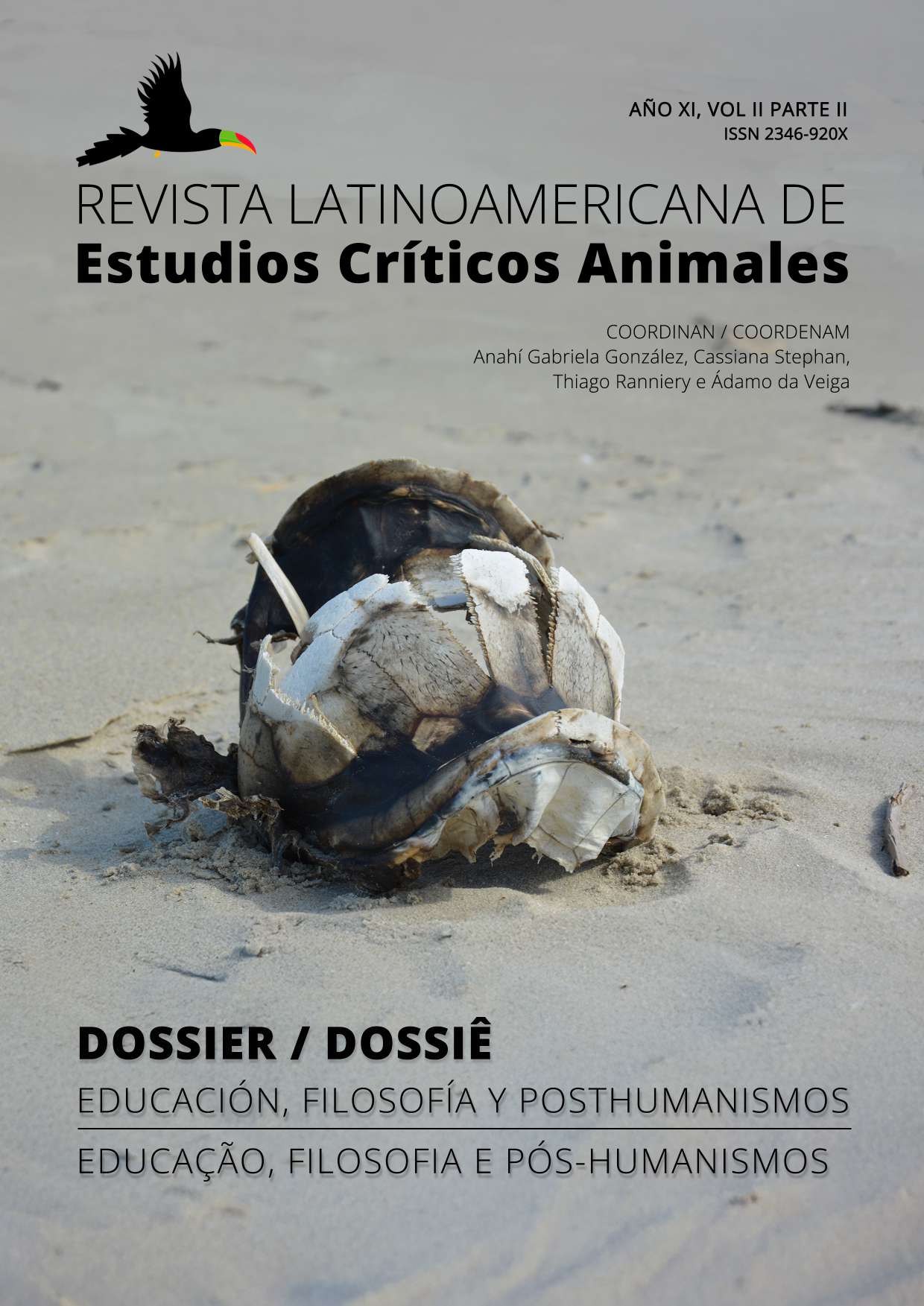Slaughterhouses and Moral Imagination: A Reading of Günther Anders Regarding the Technicization of our Relationship to Non-human Animals
Keywords:
slaughterhouses, Günther Anders, moral imagination, technicizationAbstract
In consumption society, people often buy unnecessary goods contrary to their own values – such as meat. This paper dives into Günther Anders’ early insight about the gap between the consequences of our actions and our ability to picture them to explain the magnitude of industrial, unnecessary meat-eating. After a general overview of Anders’ thesis on the technicization of the human world, we apply his views to the specific question of how we treat non-human animals in an increasingly technicized society. Based on the “positive moral opportunity” that Anders sensed in the gap, we advocate cultivating moral imagination to avoid the most extreme consequences of our actions, such as the industrial slaughter of animals.
References
Adams, C. J. (2016). La política sexual de la carne. Madrid, Ochodoscuatro Ediciones.
Anders, G. (1987). Gewalt, ja oder nein: Eine notwendige Diskussion (edición original). Knaur.
Anders, G. (1995). Die Antiquiertheit des Menschen. 2: Über die Zerstörung des Lebens im Zeitalter der dritten industriellen Revolution. Beck. Traducido al español por Monter Pérez, J. (2011). La Obsolescencia del hombre (Vol. II.). Sobre la destrucción de la vida en la época de la tercera revolución industrial. Pre-Textos.
Anders, G. (2002). Wir Eichmannsöhne: Offener Brief an Klaus Eichmann. Beck. Traducido al español por Gómez Ibáñez, V. (2001). Nosotros, los hijos de Eichmann: Carta abierta a Klaus Eichmann. Paidos.
Derrida, J. (2006). L’ animal que donc je suis. Galilée. Traducido al español por De Peretti, C. y Rodríguez Marciel C. (2008). El animal que luego estoy si(gui)endo. Trotta.
Dhont, K., Hodson, G., Loughnan, S., Amiot, C. (2019). Rethinking human-animal relations: The critical role of social psychology. Group Processes & Intergroup Relations. 22. 769-784. 10.1177/1368430219864455.
Eatherly, C., & Anders, G. (2015). Burning Conscience. Verdun Press. Traducido al español por Vicente Gómez Ibáñez: Anders, G. (2012). El piloto de Hiroshima: Más allá de los límites de la conciencia : correspondencia entre Claude Eatherly y Günther Anders (1ª ed. en Colección Booket). Booket.
Ioannidou, M., Lesk, V., Stewart-Knox, B., & Francis, K. B. (2023). Feeling morally troubled about meat, dairy, egg, and fish consumption: Dissonance reduction strategies among different dietary groups. Appetite, 190, 107024. https://doi.org/10.1016/j.appet.2023.107024
Joy, M., (2013). Por qué amamos a los perros, nos comemos a los cerdos y nos vestimos con las vacas, Plaza y Valdes.
Nibert, D. A. (ed.) (2017). Animal Oppression and Capitalism. Bloomsbury Publishing.
Robles Elong, I., Carreras, M. R. (2019). Necropolítica fágica y la vida en el Habeas Viscus: el matadero como espacio de excepción y la agencia de los otros animales en los lugares invivibles de la existencia. Revista Latinoamericana de estudios críticos animales.
Downloads
Published
Issue
Section
License
Copyright (c) 2025 Revista Latinoamericana de Estudios Críticos Animales

This work is licensed under a Creative Commons Attribution-NonCommercial-ShareAlike 4.0 International License.
La Revista Latinoamericana de Estudios Críticos Animales con ISSN 2346-920X se adhiere a las diferentes iniciativas que promueven el acceso libre al conocimiento, por lo que todos los contenidos de la misma son de acceso libre y gratuito y publicados bajo la licencia Creative Commons, que permite su difusión pero impide la alteración de la obra e incluye siempre mención al autor/a y fuente.
Es decir, una licencia de tipo Atribución-NoComercial-SinObraDerivada.
Por ello, los correos electrónicos de los autores se encontrarán a disposición de los lectores, en caso de que deseen contactarlos personalmente.




